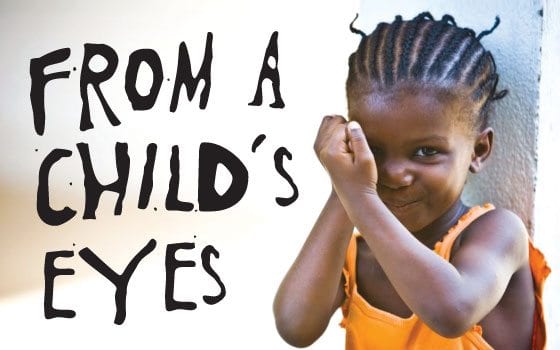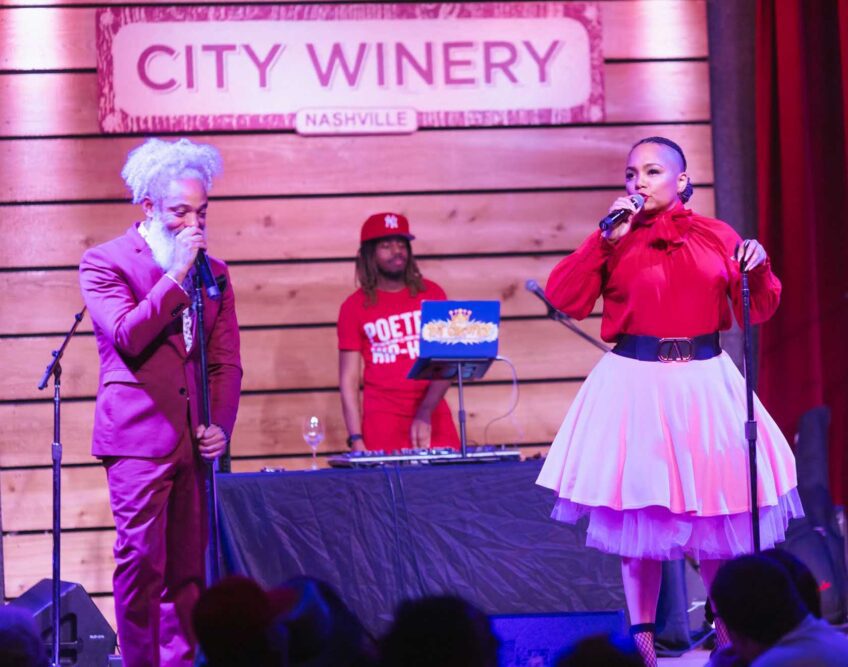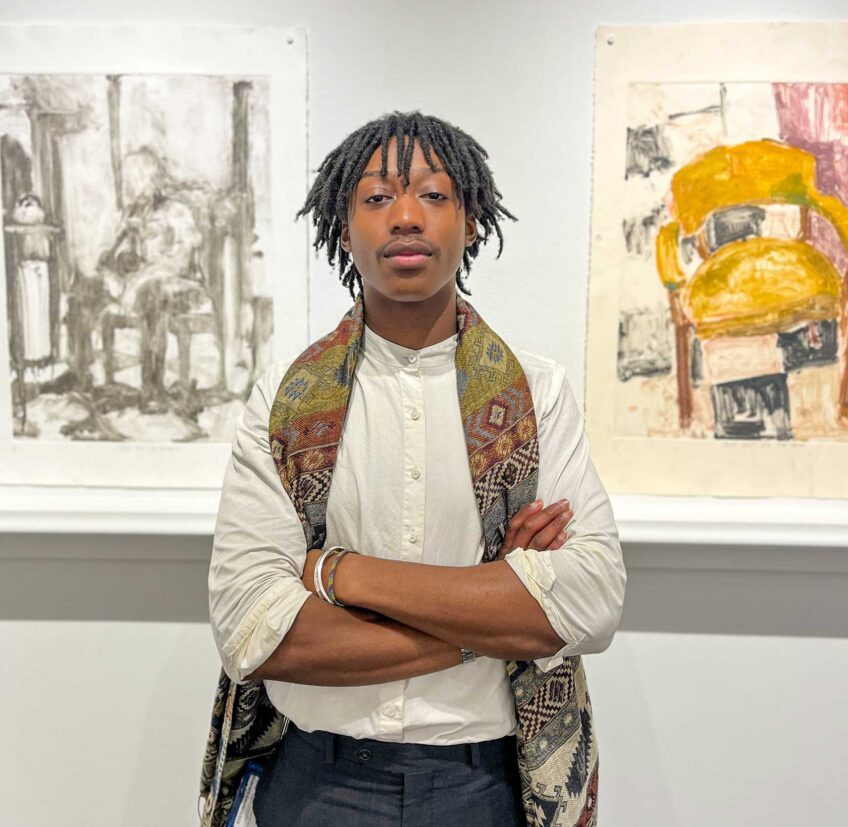In an upcoming report, CNN’s Soledad O’Brien tells the compelling story of Haitian children


In an upcoming report, CNN’s Soledad O’Brien tells the compelling story of Haitian children
| (Photos courtesy of Jonathan Torgovnik/CNN) |
Nearly five months after the devastating earthquake in Haiti, it’s very easy to forget about the ongoing crisis there.
Fortunately, CNN’s Soledad O’Brien stands out as a journalist who has remained very committed to keeping the story of the country’s recovery on the front burner.
She recently returned to the region to investigate the plight of the disaster’s most vulnerable victims — the children. Interviewing locals, missionaries, aid workers, bureaucrats and children themselves, Soledad discovered that Haiti now has about 380,000 orphans, and that many of them have been sold into slavery.
Their perilous predicament is the focus of “Rescued,” Soledad’s shocking special report that is set to premiere on CNN on Saturday, May 8 at 8 p.m.
Here, she talks about the riveting documentary, which will be narrated in part by Wyclef Jean and Edwidge Danticat and told from the perspectives of 6-year-old orphan Candy Jeune and a freed slave named Marc Kenson Oliphi.
What interested you in covering this story?
I don’t think you can walk around reporting on Haiti and not feel compelled by the story of the orphaned and abandoned children. When I was there immediately after the earthquake, there was certainly nothing as heart-wrenching as seeing the condition of many of the kids, because it’s such a massive problem.
Two things that shocked me watching an advance copy of the special: the sheer number of Haitian children without parents, 380,000, and the fact that about 300,000 of them are enslaved.
It’s incredible, isn’t it? And that estimate is conservative. Some people put the number at around 1.5 million on the high side. That’s what I heard yesterday, but it’s just an educated guess at this point.
What is the Haitian government doing?
It’s such a hard thing for those of us in this country to get our minds around, but it’s completely legal. I’m sure you saw in the piece how the father of the boy named Matthinson sold him for about $12 to go and be a slave for a complete stranger. But it’s an indication of just how devastating the poverty is in Haiti that that’s a viable option. It’s pervasive throughout the country. And unfortunately, it’s perfectly legal.
Another segment I found compelling was the one about the missionary work of Bill and Suzette Manazarro. Why did you decide to include them?
It was such a great story in a lot of ways, starting with Suzette and Bill’s philosophy of taking in children not to send them overseas for adoption, but to raise them right there so they can grow up to become productive, stand-up citizens and help rescue Haiti. The “Rescue” in our title refers not only to the Manazarros’ work but also the hope that the children might, in turn, rescue their own nation. I thought that was a very interesting strategy for a nation that’s just been through a devastating earthquake. It also helped that we came across a young man who had been shooting at their orphanage for a few years. His videotape enabled us to tell their story from 2007 to the present.
You also said that about three-quarters of Haiti’s schools are in ruins. So, are the children being educated?
In some cases, yes. I’m not sure of the latest status on that, because the situation is changing very rapidly. But the official schools have been ruined. They collapsed in the earthquake. In fact, the entire infrastructure of the children’s lives has pretty much collapsed. So many people, like Bill and Suzette, have set up their own schools for the kids in their care.
What does Haiti need right now?
Well, Kam, how much time do you have?
Then answer this, how can someone who wants to get involved help Haiti?
There are so many churches that have missions in Haiti. I’d say reach out and find an organization whose work you like and get connected through them.
What outcomes do you hope to have as a result of this special?
I think one goal is just to keep the story of Haiti in the news, to keep people exposed to what’s going on in order to help them recognize the depth of the problem for orphans in a really cohesive way.
I understand, because I was torn between interviewing a movie star this week and this opportunity to talk to you about Haiti again. I’ll be honest; I seriously debated it.
I won the toss-up, then. [Laughs] I love to be able to get out an important message so that another journalist asks himself, “Hmm? Should I interview a starlet with a new hit movie or do an interview about this important story that still needs to be told?” I love that you wrestled with that. And that I won. So, journalism lives! I’m excited about that.
You previously mentioned the need for “opportunity” and “real infrastructure” in Haiti. Did you see any improvements during your recent visit?
Yes, I did see some minor improvements, but it’ll be more interesting to look at the answer to that question when I go back next month.
Do you think that a new, stronger Haiti will be a valuable ally to the U.S. military?
I think the answer is yeah, probably. But that’s not the big problem right now. What Haiti needs is infrastructural repair, not a new military base or a great jumping-off point for U.S. armed forces. They need jobs for the people and care for the children, and a movement to address the child-slavery issue. In my mind, all that stuff comes way before any questions about whether Haiti’s well-positioned to be a viable military base for the United States.
On a separate front, the U.S. Census Bureau is doing its count. President Obama checked off “black” even though he has a white mother. What did you put down on your census form?
I find the question really ridiculous. All the schooling I have to do on this topic is wearing me out. Obama is black. His mother was white. I am black. My father is white. I’m going to give everybody a History 101 lesson. Some black people have white blood in them. This has been going on for many generations, people. Look at any family of black people. They run a range of colors.
You and all five of your siblings graduated from Harvard, so I have to ask you what you think about Stephanie Grace, the Harvard law student who recently sent out an e-mail stating that she believes black people are genetically inferior to white people. Were you shocked by her statement?
My first reaction was, “Well, who’s the dumb one?” If you’re going to talk about innate intelligence, maybe sending out that e-mail is not the smart thing to do. That would make me ask, “Who’s the stupid one in this equation?” But am I shocked? Sadly, no. I’m not even surprised.
Well, Soledad, thanks again for another interview.
Thank you so much for doing this story. We’re hoping that lots of folks watch “Rescued,” because it’ll be an indication that people want continued coverage of Haiti.




![Banner [Virtual] Art Gallery](https://baystatebanner.com/wp-content/uploads/2024/04/AmberTorres_4-667x848.jpg)

